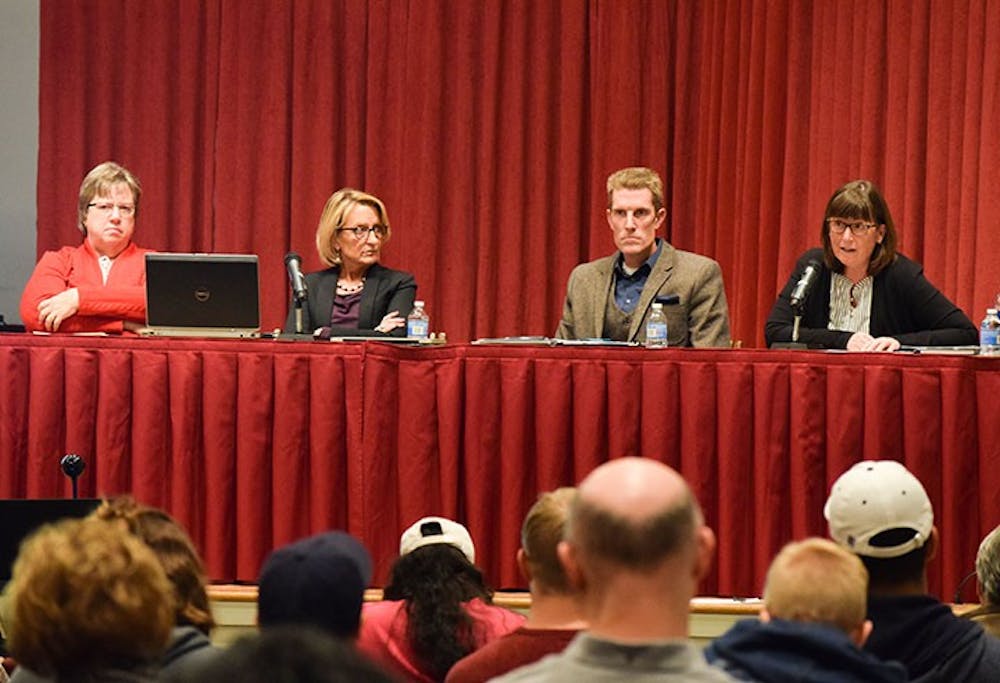Four professors discussed women saints and their abilities to break through gender norms and patriarchal hegemony Wednesday in Shippensburg University’s Old Main Chapel.
The panel was led by SU English professor Shari Horner, SU sociology professor Barbara Jones Denison; Shepherd University associate history professor Sally Mayall Brasher; and University of Baltimore’s assistant criminal justice professor Patrick Hughes.
The professors wrote chapters of a book titled “Women, Religion and Leadership: Female Saints as Unexpected Leaders.” The book focuses on different female saints and how they are portrayed as heroes. Often women saints are written about in terms of piety, sanctity and virgin martyrdom, whereas male saints are written about in terms of what they did, according to Denison.
The panel instead looked at how female saints were leaders and what lessons they left behind.
“What could we learn about how to achieve things under the heavy weight of patriarchal and gender norms that these women dealt with in the context of the times they lived in,” Denison asked.
During her segment of the panel, Horner discussed how St. Katherine of Alexandria, St. Margaret of Antioch and St. Cecilia were female martyrs that Joan of Arc looked up to. These women could all debate issues for which they felt passionate, had intense spirituality, could command public space and faced public executions.
Brasher told the story of St. Catherine of Siena and how her actions could be seen as political.
When Catherine was in her 20s, she received a vision from God to spread His word to the men in power. She was the leader of a movement and her political action spanned over a decade, although it is not successful.
“I think it’s phenomenal that there is a woman in this incredibly male-dominated political sphere who is being taken seriously,” Brasher said. “She’s leading followers in this covert action and she’s influencing people.”
Catherine McAuley was the subject of Hughes’ section. He told the story of how McAuley created the Sisters of Mercy and Baggot Street in Dublin, Ireland. After noticing how poor and sickly women did not have an opportunity to advance themselves, McAuley created Baggot Street. It was a small building where women could live, get educated and take care of other sickly women. The Sisters of Mercy and Baggot Street still exist.
“Her mission is still alive and well today,” Hughes said.
Denison was the last to speak and discussed St. Hilda of Whitby and how she used transformational leadership and pushed gender roles as the “mother of bishops.” Hilda founded an abbey that still exists today, and made abbeys become recognizable for European status.




The Slate welcomes thoughtful discussion on all of our stories, but please keep comments civil and on-topic. Read our full guidelines here.